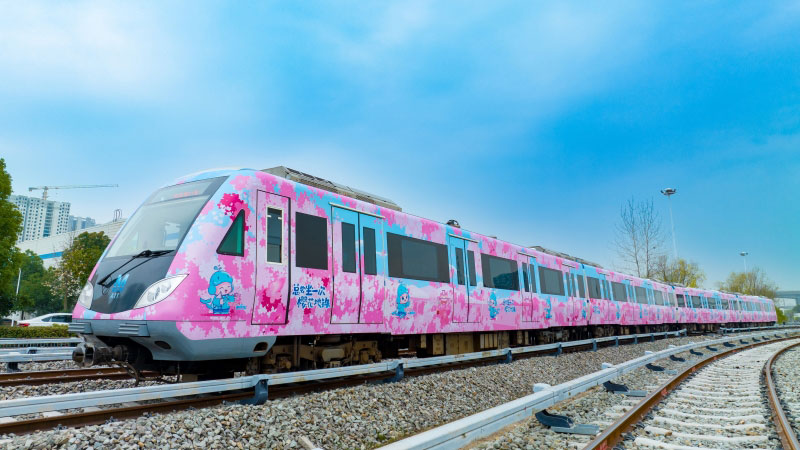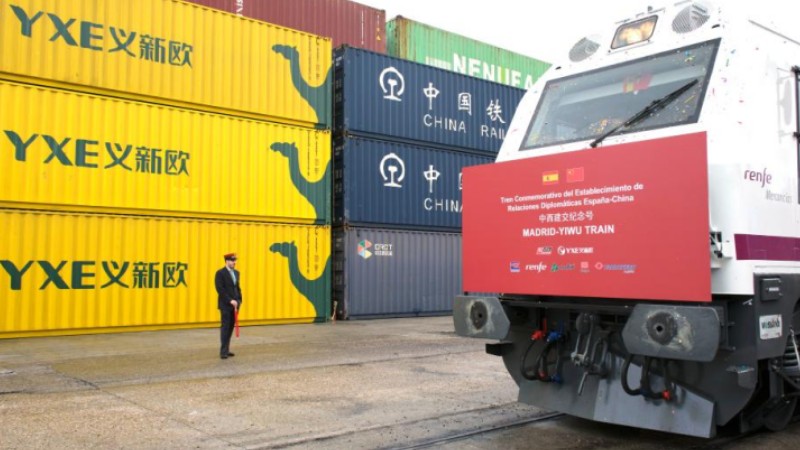Experts share views on China's institutional reform (3)
Improving governance for the good of people
After more than three years of disruptions caused by the COVID-19 pandemic, this spring, the season of rebirth, has a special significance, as it signals a restart after a long and costly challenge in both economic and human terms.
This is also an important year for reform in China, with many proposals presented to the annual session of the National People's Congress, China's top legislature, to improve the delivery of government services to better serve the people. There are changes in the country's central leadership, with numerous experienced leaders already assuming higher positions to help steer the ship of the State at the national level. This spring also represents continuity of President Xi Jinping's leadership.
Democracy isn't one size fits all. The bottom line is how China gives its 1.4 billion people a better life. And while no government is perfect, China has delivered exceptionally well for its people. It has lifted 800 million people out of extreme poverty, a feat unmatched in human history. Also, China's life expectancy at birth, a universal measure of human development, exceeds that of the US. China's pandemic prevention and control measures, too, have been more effective than other countries', as its death toll and number of infections are lower than those of other major countries.
In fact, in terms of COVID-19 deaths and infections, it's still "America first". That the United States has the highest death and infection rates in the world despite having a population about one-fourth of China speaks volumes of the effectiveness of China's anti-pandemic measures.
And to better serve the people, China plans to deepen reforms in different sectors including restructuring its Ministry of Science and Technology, setting up a national financial regulatory administration, and establishing a national data bureau. These moves will help China improve its governance capabilities and inspire the Chinese people to make technological breakthroughs, which would help strengthen financial security and data regulation.
The reform plan for State Council institutions is in line with the reform plan for Party and State institutions which was recently approved at the Second Plenary Session of the 20th Communist Party of China Central Committee.
The reform of the Party and State institutions is the first major systemic step toward achieving the "second centenary goal" of developing China into a "great modern socialist country that is prosperous, strong, democratic, culturally advanced, harmonious, and beautiful" by the middle of this century. Equally important, it is a guarantee for institutional stability and progress for the next five years and beyond, in order to better serve the Chinese people.
Despite all this, however, the US continues to demonize China and its governance system.
The fact is, China's system works and has been strenuously tested by time. China uses five-year plans to set its socioeconomic goals and measure its achievements (and occasional misses). It has a "sink or swim" personnel system that rewards officials with promotions only so long as they perform well in their positions starting from the village level right up to the national level, including in large State-owned enterprises. Under this system, someone like previous US president Donald Trump would have been red-flagged from day one, which would have prevented him from progressing further.
So why does the US refuse to recognize China's great achievements and use its energy to unfairly demonize China and stop its peaceful rise? Perhaps because the US can't come to terms with the fact that there's a different political and development system out there that works better and achieves more for the country's 1.4 billion people than the US can for many of its 336 million people.
The United States is founded on a myth called "American exceptionalism" wherein the country was chosen by God to lead the world. The myth certainly seems to have been busted. So to hide its own deficiencies, the US bullies others, whether friends or foes, to misdirect the world's attention. This is the time of the year that gets an extra dose of bile from the US, because of the annual sessions of the National People's Congress and the Chinese People's Political Consultative Conference National Committee, which are important meetings that will result in even more improvements for China and its people.
No matter what China does, in the US' eyes it's wrong. This is not unique to US foreign policy; it applies to the dysfunctional, deeply divided US domestic political system, too.
The best analogous example I can think of is the continuing Republican attempt to blame President Joe Biden for the horrendous freight train wreck in East Palestine, Ohio, on Feb 3 which released toxic chemicals, killing wildlife and making many people sick. The Republicans accused Biden of causing the accident because of lax regulations and their enforcement.
The truth, however, is the Republicans, who don't believe in safety nets, scrapped the previous regulations that might have prevented the tragedy, which many experts say was both predictable and foreseeable. The Republicans just can't own up to their own deficiencies and mistakes, and keep blaming the Democrats.
It's exactly the same with the US' relations with China. Rather than getting its own house in order, the US blames and demonizes China. Starting with Trump and continuing with Biden, dialogue has been replaced with saber-rattling.
From watching the proceedings of the Two Sessions, as well as the circus that is the US Congress, I can tell you that if we don't soon return to dialogue, discussion and problem-solving of the existential issues of our day such as climate change, global public health and arms control, this just isn't going to end well.
So, the US should stop demonizing China's institutional reform as a kind of "power grip" of the CPC and see it more as a sincere attempt to improve governance and focus on making its administration more efficient including improving infrastructure. More important both the Republicans and Democrats should know that divided power hinders socioeconomic development.
 |
Photos
Related Stories
- Chinese premier meets press after annual legislative session
- China's new cabinet lineup decided at top legislature
- 'Proposing motions in the name of whole delegation' becomes a more efficient, precise way for NPC delegates to implement whole-process people's democracy
- China's national legislature adopts revision to legislation law
- China's national legislature holds closing meeting
Copyright © 2023 People's Daily Online. All Rights Reserved.









